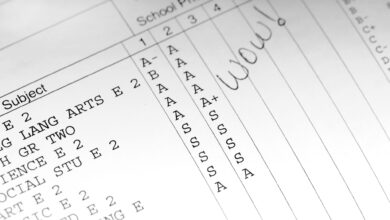Improving teacher wellbeing starts with you

Here are 12 actions you can take immediately to start improving your own wellbeing.
Staff wellbeing is a massive issue in schools. Teaching is often listed as one of the most stressful professions. One of the contributing factors is that we deal with people every day and people can be unpredictable. We never know what stressors are going on in other people’s lives. That is one of the key reasons why working in schools (not just in teaching roles) is so stressful.
The impact on schools is massive. High levels of stress and poor staff morale impact on staff engagement and therefore impact student learning. The discretionary effort and energy we rely on so much in schools evaporates if we are stressed or not happy in our work. However, ‘fixing’ staff wellbeing is not easy and requires focused attention by school leaders, systems, school councils and most importantly staff themselves.
Take responsibility for your own personal wellbeing
Many educators put themselves last! They work long hours tirelessly trying to be all things, for all people. Looking after your own wellbeing needs to be a priority.
Undertake a thorough health appraisal every year
Early detection is better than pursuing a cure.
Replace the term work-life balance with work-life satisfaction
‘Balance’ can be very difficult to achieve, especially in a job where the work is demanding and has social impact. It is important that we get satisfaction from our work as well as the other aspects of our lives. Instead of aspiring for work-life balance, aim to get work-life satisfaction.
Set boundaries on your work hours
For staff working in schools, no matter how many hours you work, there is always more that could be done. It is vital to set boundaries to stop work overtaking and having an impact on the other aspects of your life. Which day of the week could you leave school at 15:30 and do something for you?
Monitor your self-talk
It is vital that you monitor that little voice inside your head and ensure that your expectations of yourself are reasonable. At times educators can be our own harshest critic. At the end of each day you should reflect on what you have achieved and not be too harsh on yourself if there are still tasks on your to do list. School days can be unpredictable with emergencies arising, sabotaging our plans and forcing us to reprioritise.
Prioritise ruthlessly
Time is one of the most precious resources you have. It is vital that you use it well. Ask yourself often, ‘Is this the most important thing I could be doing with the time I have available?’ A good way to feel that you are gaining traction is to identify at the beginning of each day, one important task that you need to make sure is completed that day, for that day to feel successful.
Clearly communicate that harassment and violence are not tolerated
It is a sad reflection on our society that many hospitals and schools now display ‘zero tolerance to abuse’ signs clearly communicating that harassment and violence towards staff will not be tolerated.
Book a holiday every break
It is vital that you take some time each school holidays to rest and recharge. A holiday doesn’t have to be extravagant. Even if you only go away for a night or two, the change of scenery and short break are worthwhile. The anticipation of the holiday can be almost as good as the holiday itself.
Establish and commit to an exercise routine
Exercise has benefits for both our physical and mental health. Establishing an exercise routine is one of the most powerful actions you can take. Often when people get busy and stressed, the first thing they stop doing is exercising. Yet, exercising is the best thing they could do for their wellbeing.
Stop for lunch
We know eating well is important to looking after our health but we often skip lunch, eat on the run or at our desk. Take at least 15 minutes away from your desk to stop and eat lunch.
Drink more water
We should drink at least two litres of water per day. This equals about eight glasses of water.
Seek expert help if feeling over-whelmed
If you are feeling over-whelmed, seek professional support. It is not a sign of weakness but a recognition of the real complexity of the role you play.
Time for some tough love:
Are you hooked on the adrenaline of being ‘busy’ and feeling ‘needed’? Are your own expectations of yourself realistic? Is your self-talk positive or are you your harshest critic?







